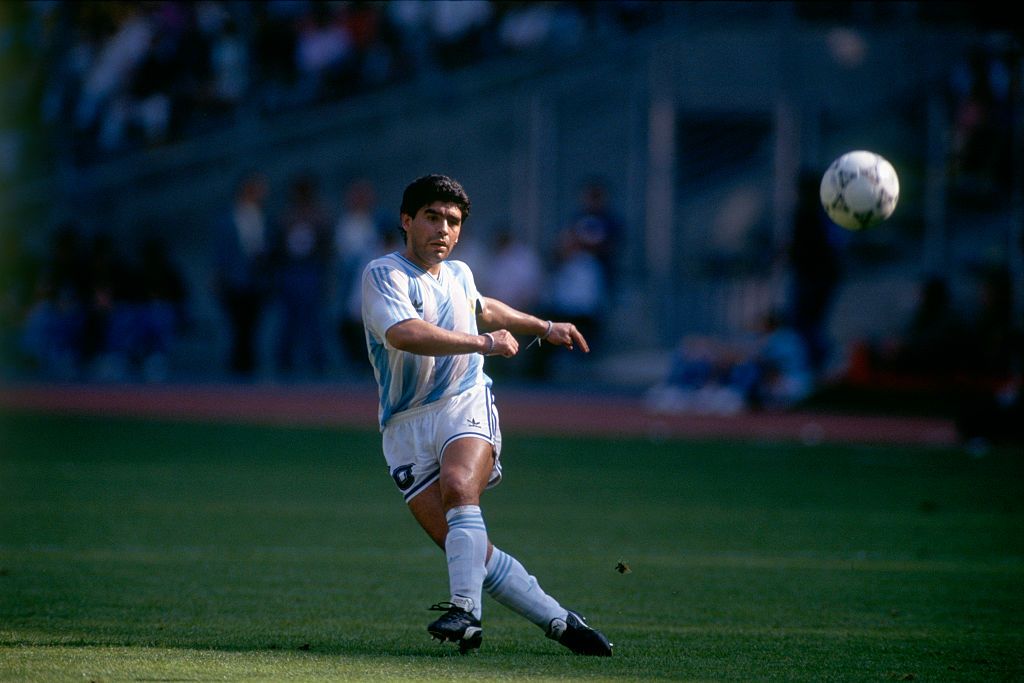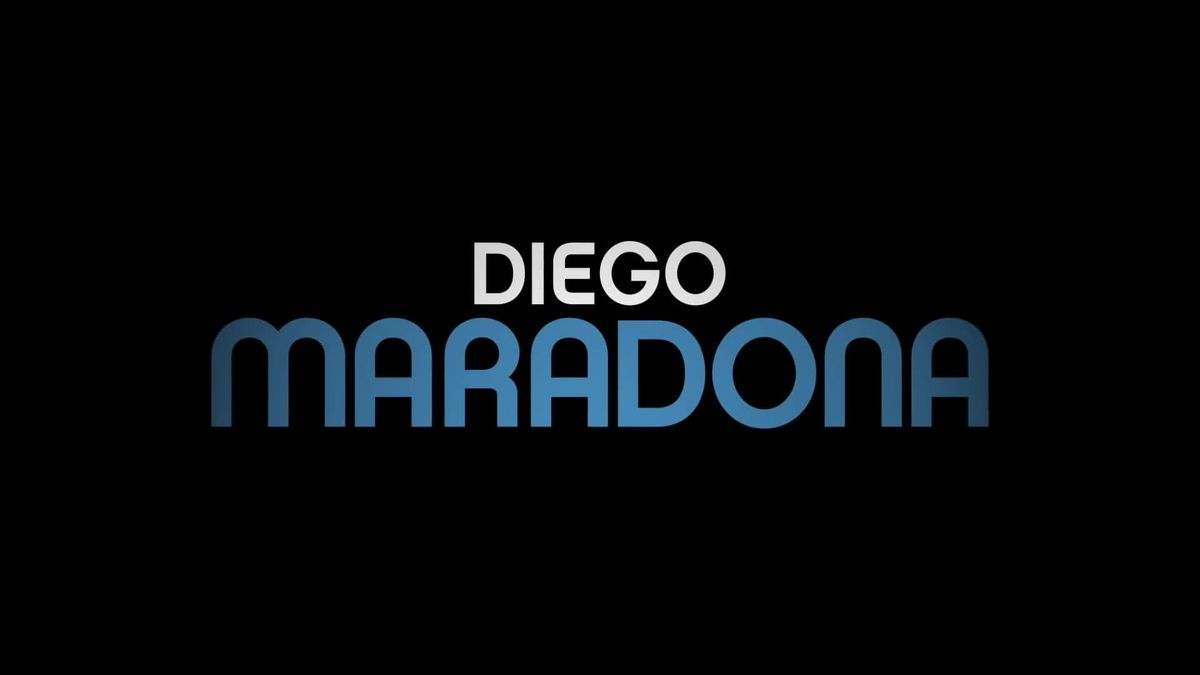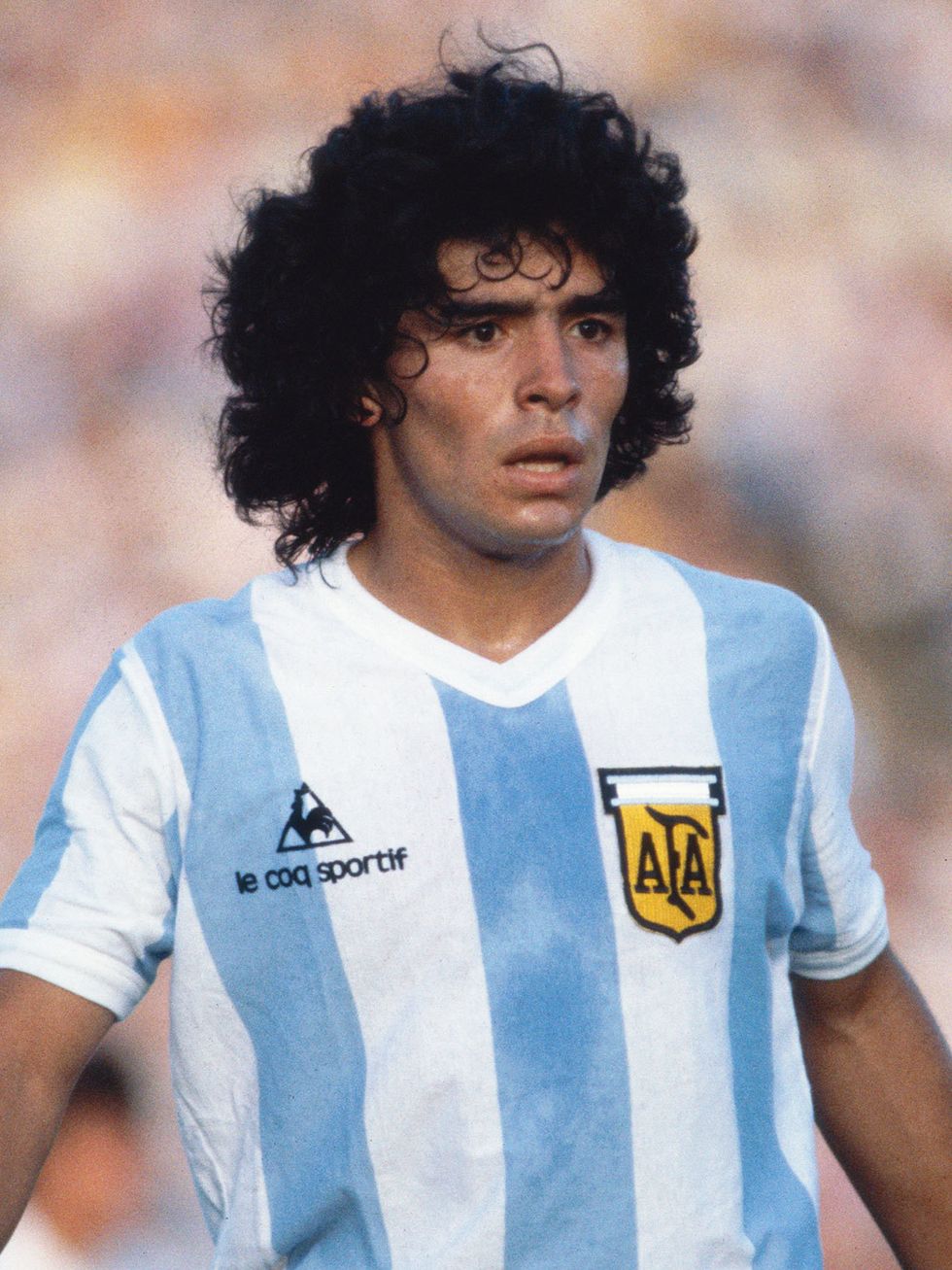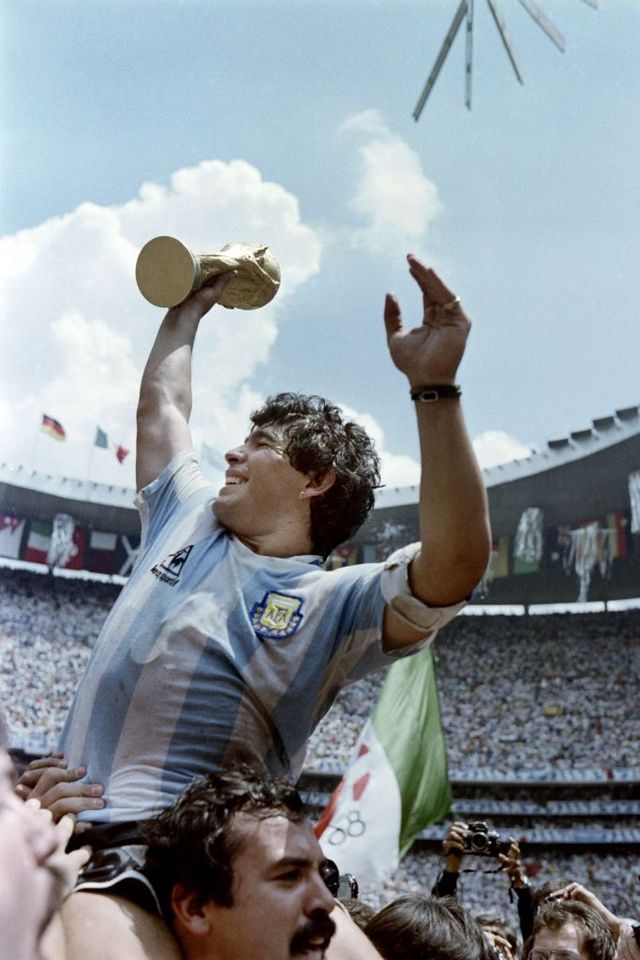If you are familiar with the story of Diego Maradona: the start to his life in a shantytown on the outskirts of Buenos Aires; the brawling at Barcelona; the journeys he took Napoli on to win the Serie A league title, and Argentina to win the world cup; the Hand of God; the towering murals of him around Naples; well... you already know.
However, if you're more shaky on the details, the story of the greatest footballer that ever lived has it all: shady mobsters, a secret love child, a Godlike figure who fell from grace and the “Goal of the Century”. At least according to FIFA anyway.
In his new film Diego Maradona, Amy and Senna director Asif Kapadia tries to untangle the man from the legendary myth by focusing on his troubled time at Napoli between 1984 and 1991. The feature-length documentary makes a point of putting distance between Diego, the loving son who as a teenager provided his family with a place to live and who sweetly doted on his childhood sweetheart, and Maradona, the wolfish caricature who openly laughs about a goal he scored with his hand and who exploited the divide between Northern and Southern Italy by asking the people of Naples to support Argentina in the World Cup over their home nation.
"[There is] the insecure kid and the character he came up with," says his longtime fitness coach Fernando Signorini in Kapadia’s film. "With Diego, I would go to the end of the world. But with Maradona, I wouldn't take a step."
Unlike Kapadia's two previous subjects, singer Amy Winehouse and Formula 1 driver Ayrton Senna, Maradona is still, just about, alive, but the accounts we hear from him (in what has become Kapadia’s signature style, those interviewed for the film are heard in voiceover but not seen, Diego included) don't dig satisfyingly enough into what caused his "unprecedented fall" and what it is about his character that led to such a public nosedive. It’s hard not to wonder if the very fact that he is alive might have caused Kapadia, perhaps even unconsciously, to pull his punches.
Which isn't to say Diego Maradona isn't a very enjoyable dose of nostalgia, with retro football kits like Italy's azure shirt from the '90 World Cup and the meticulously edited compilations of Maradona's balletic movements across the pitch making for a glorious highlight reel that you could indulge in for hours. (The amazing cache of unseen footage has a story of its own – as Kapadia told Esquire recently.)
There are scenes of stadiums erupting as he scores, the grainy footage infinitely more atmospheric than the 8k Ultra-High-Definition which allows us pick up each pore on Messi's nose nowadays. There are interviews with Neapolitans who earnestly compare him to God and snapshots of the boisterous humour of Naples – one sign left outside a cemetery after Napoli's historic scudetto reads: “You don't know what you missed.” As a viewing experience it certainly isn’t short on atmosphere.
Maradona’s fall was steep and sudden, a legend who arrived to the roar of 85,000 people and, as he says mournfully, "left alone". But whereas the full horror Amy Winehouse's unravelling took place behind closed doors in Camden Town, Maradona's fall from grace was played out on football pitches that were broadcast around the world, and will be very familiar to many who watch this film.
One especially downcast scene finds him at the Napoli Christmas party, the noise of the crowd fading away while he sits alone and wide-eyed; other scenes show him nodding along to the chants about him that he's now tired of. It makes for a glum viewing, but nothing could be more sobering than the images of Maradona flailing in-front of a screen covered in powdery fingerprints at the Russia World Cup last summer, footage which appears toward the end of the film.
"He’s huge, and I think maybe more well-known around the world than [Ayrton Senna and Amy Winehouse] put together, and it’s football, which is bigger than anything," Kapadia told Esquire. Football isn't an easy topic to pin down in documentaries, with the need to make it clear for those who don't follow the sport, while also providing new insight for those who do often proving a tricky balancing act.
Diego Maradona seems to err too much toward the former without unearthing many moments which haven't already been pored over. By the end of two hours the film has enjoyably revelled in the myth of Maradona, but doesn't leave us much closer to understanding Diego.
'Diego Maradona' is out now















